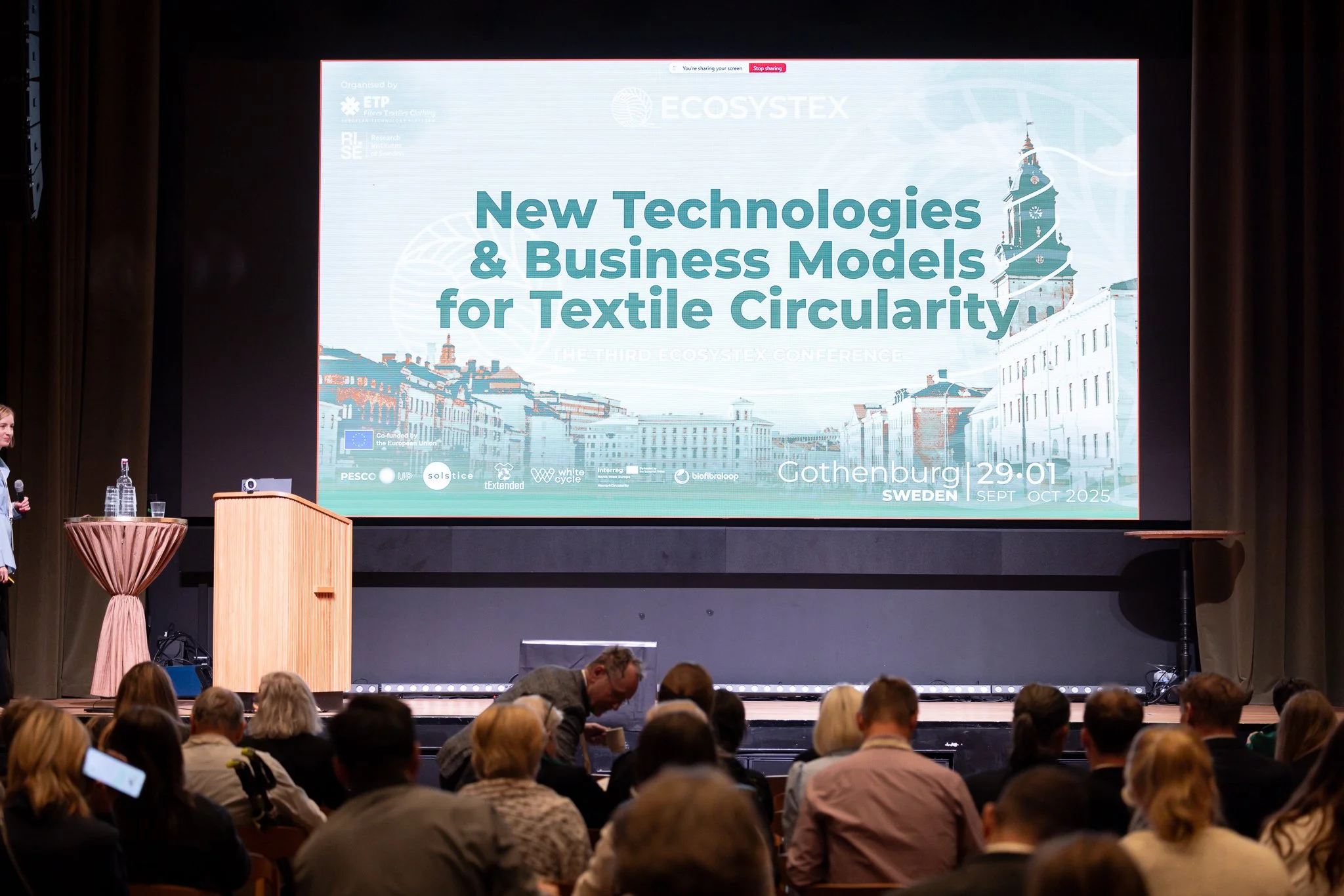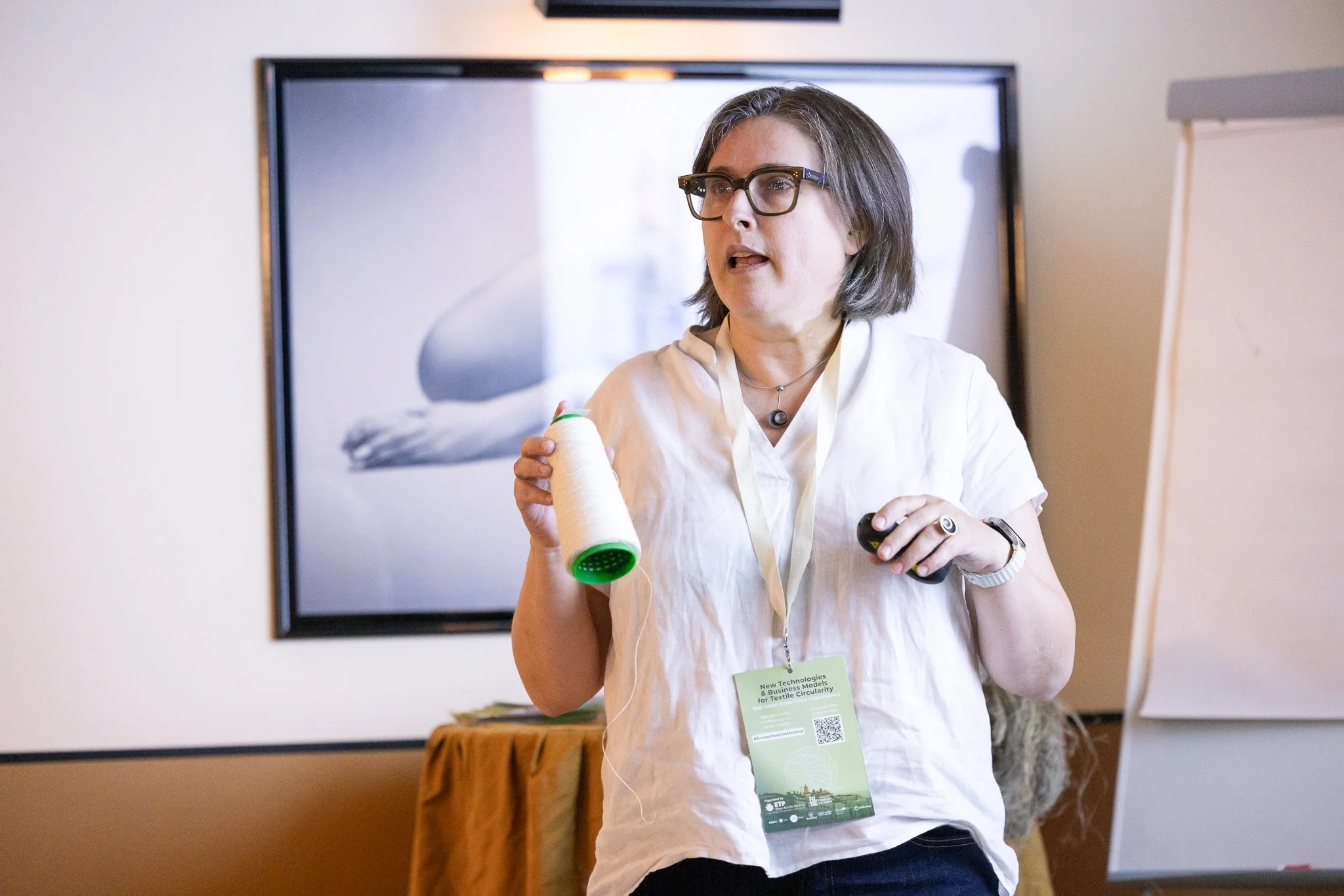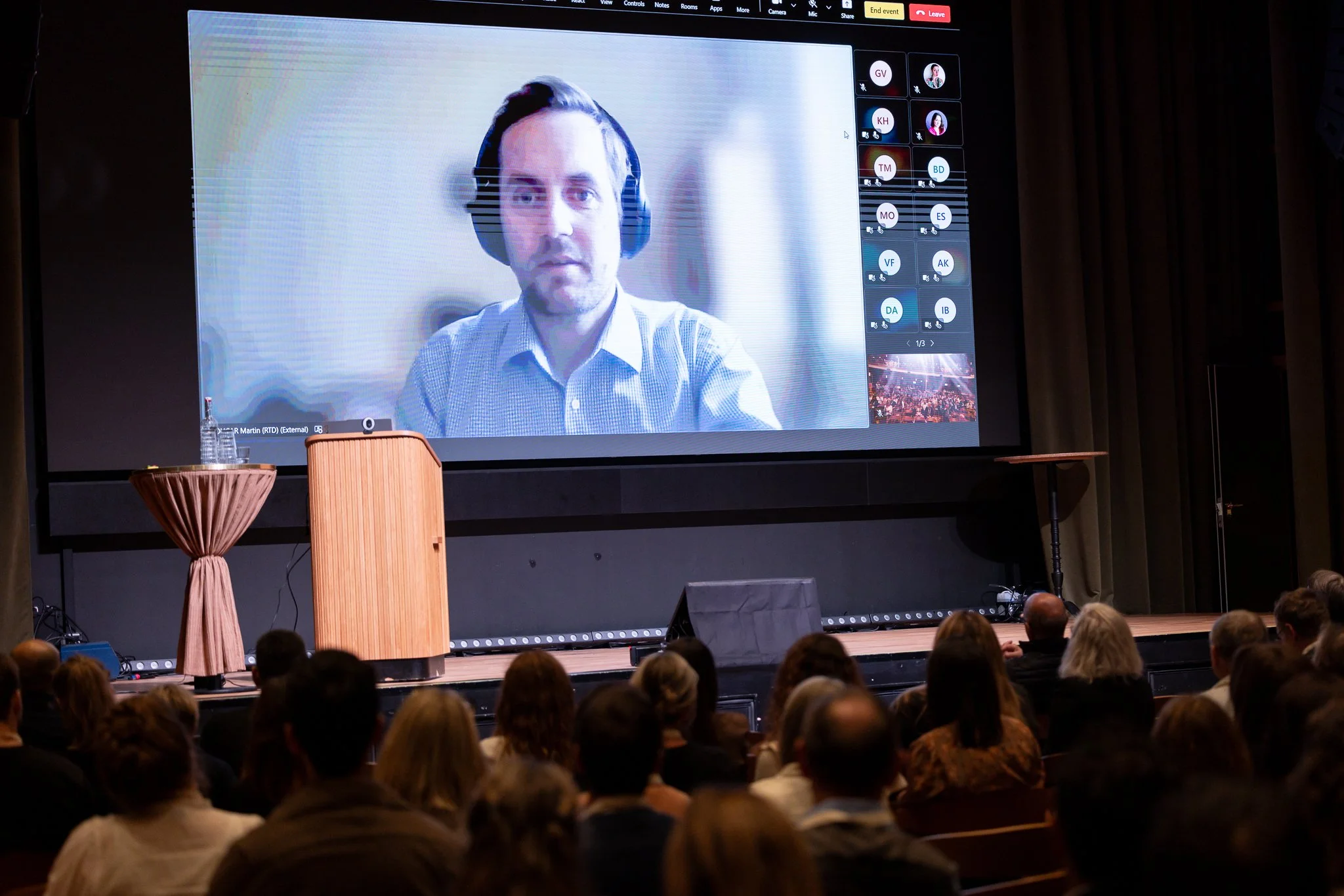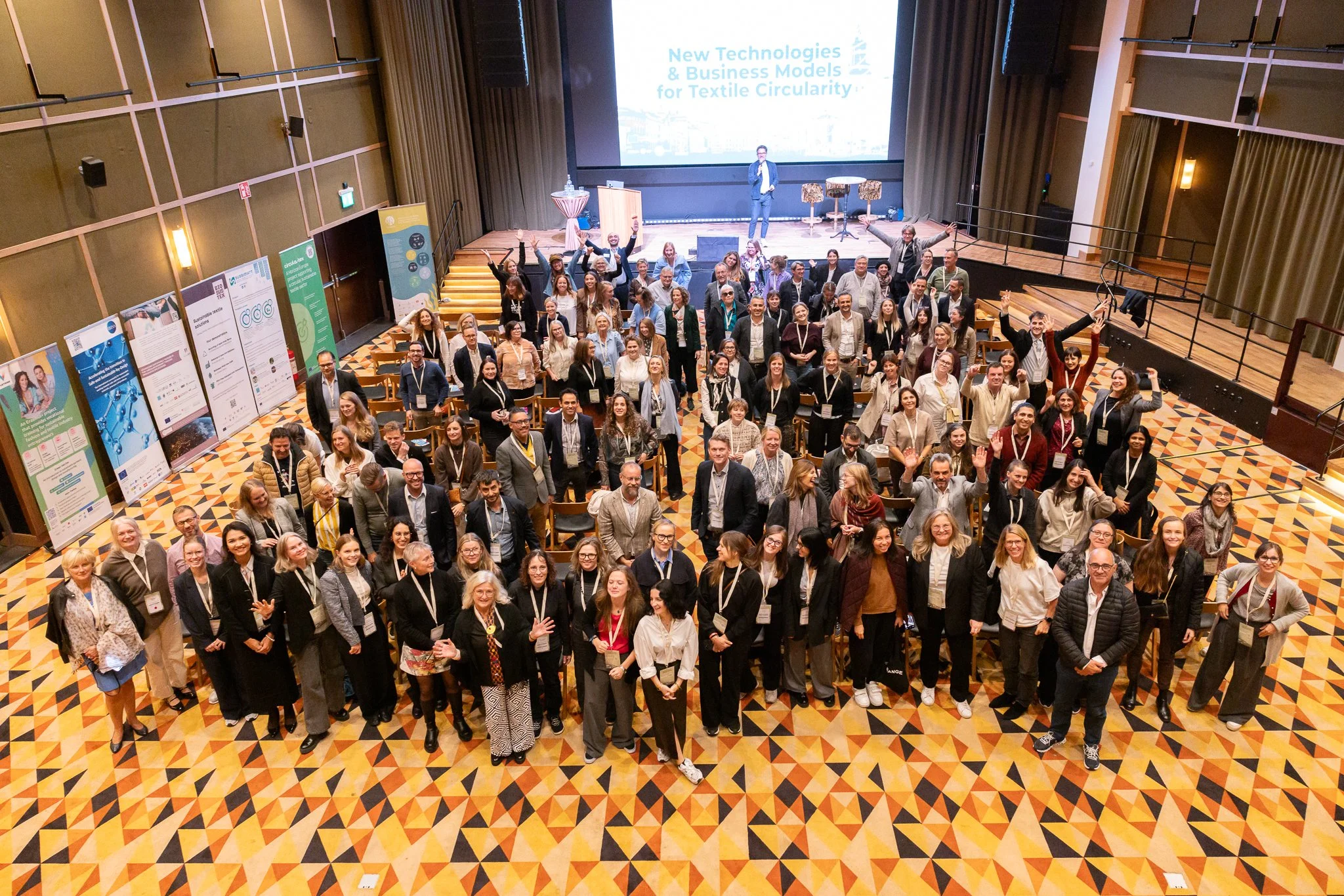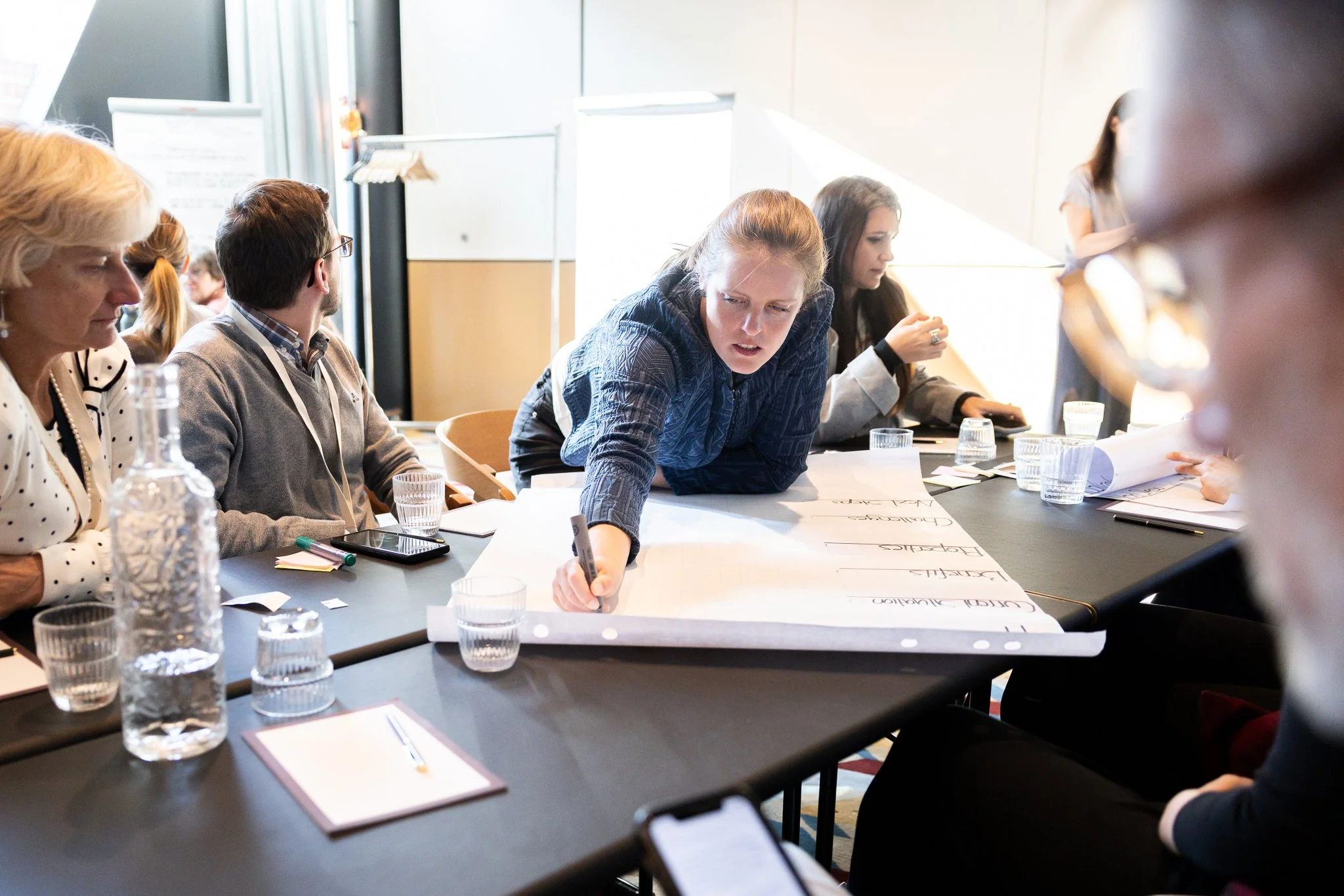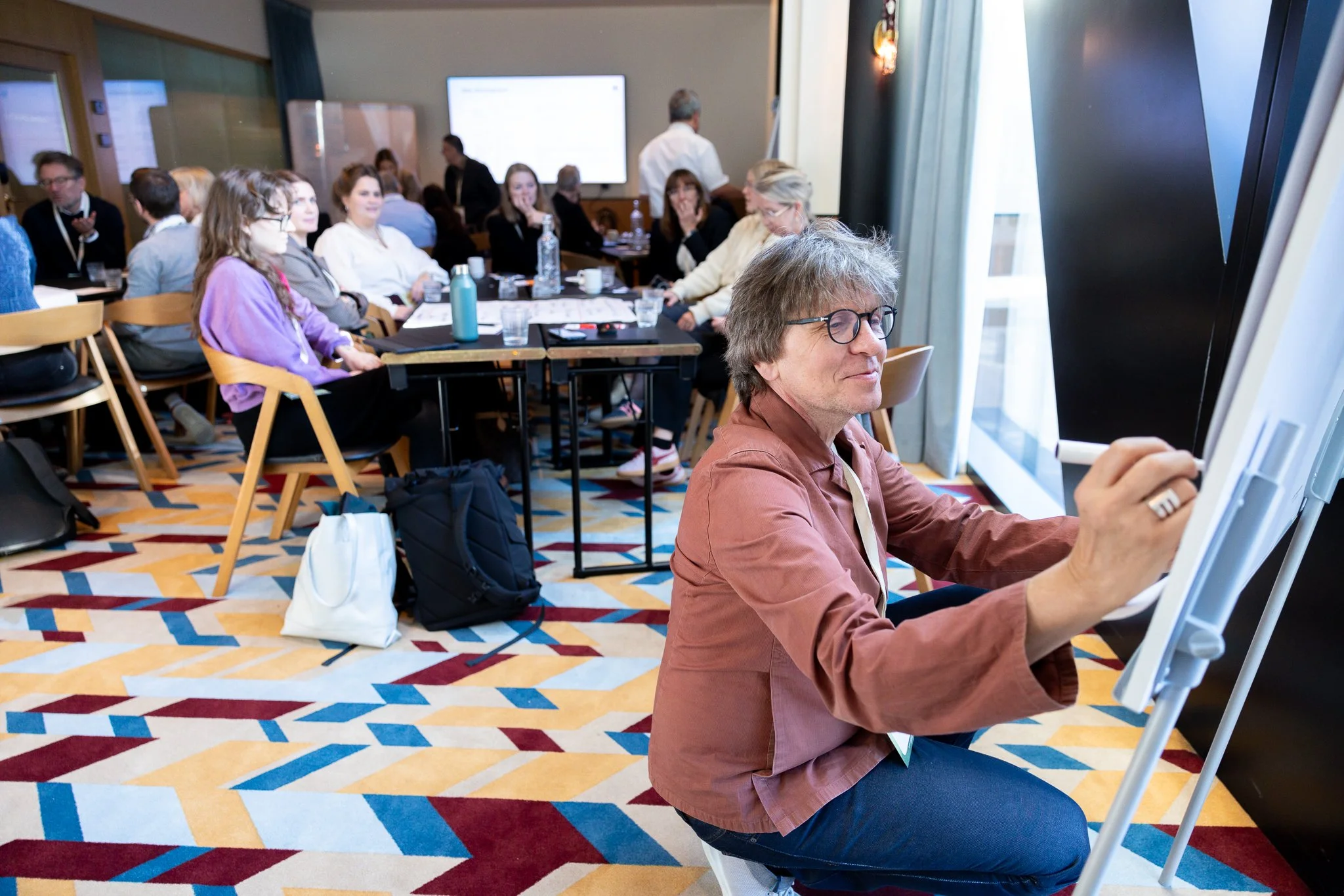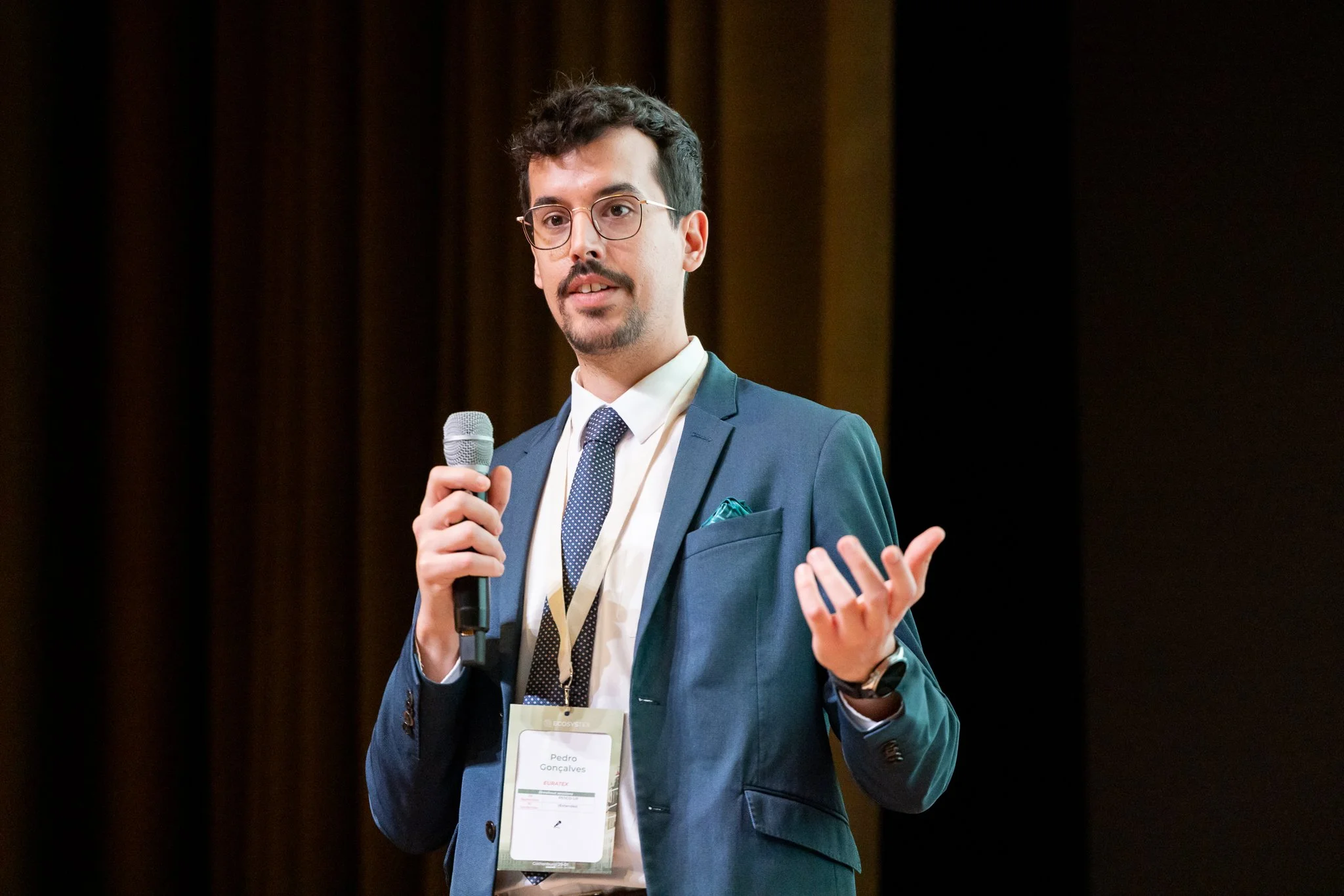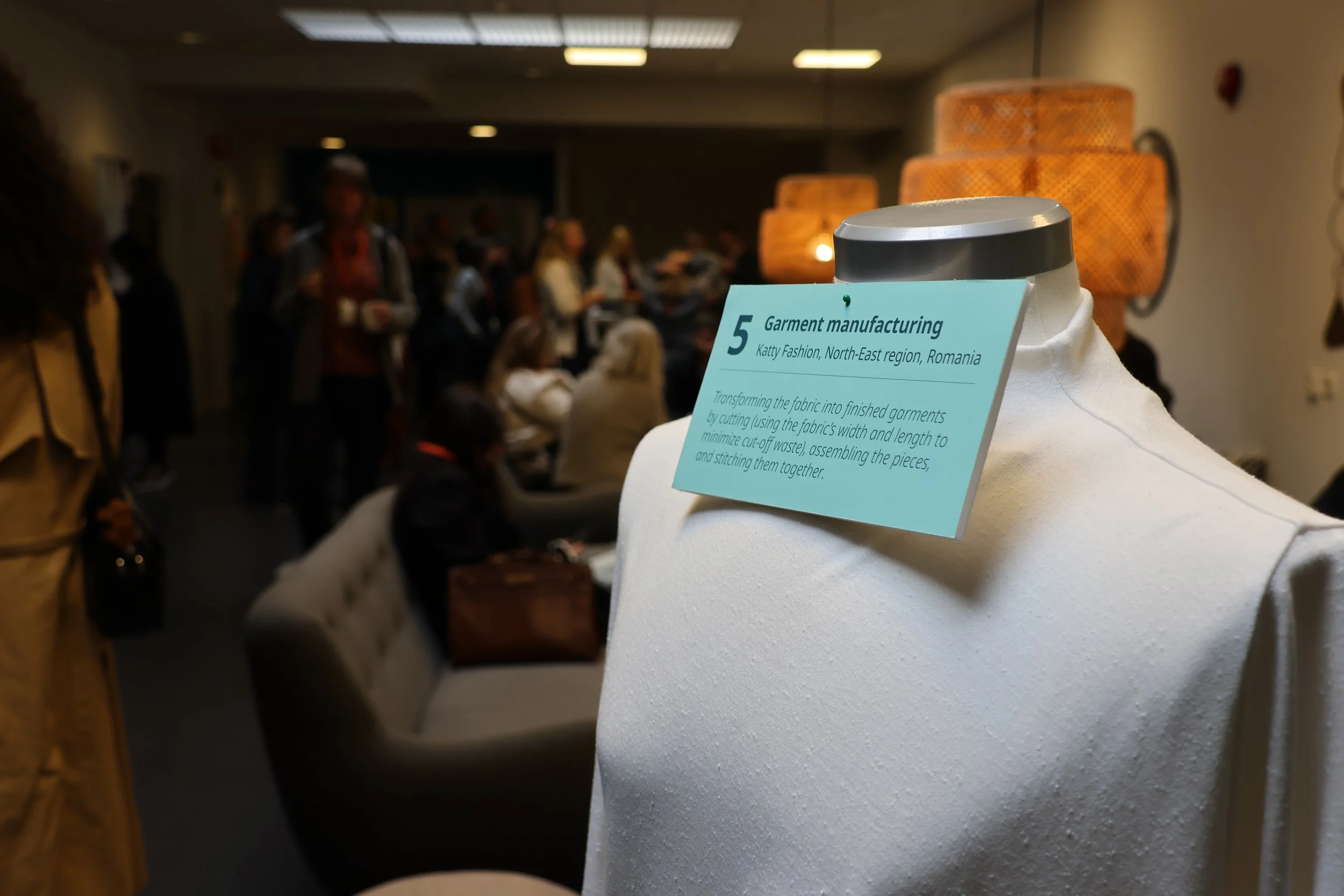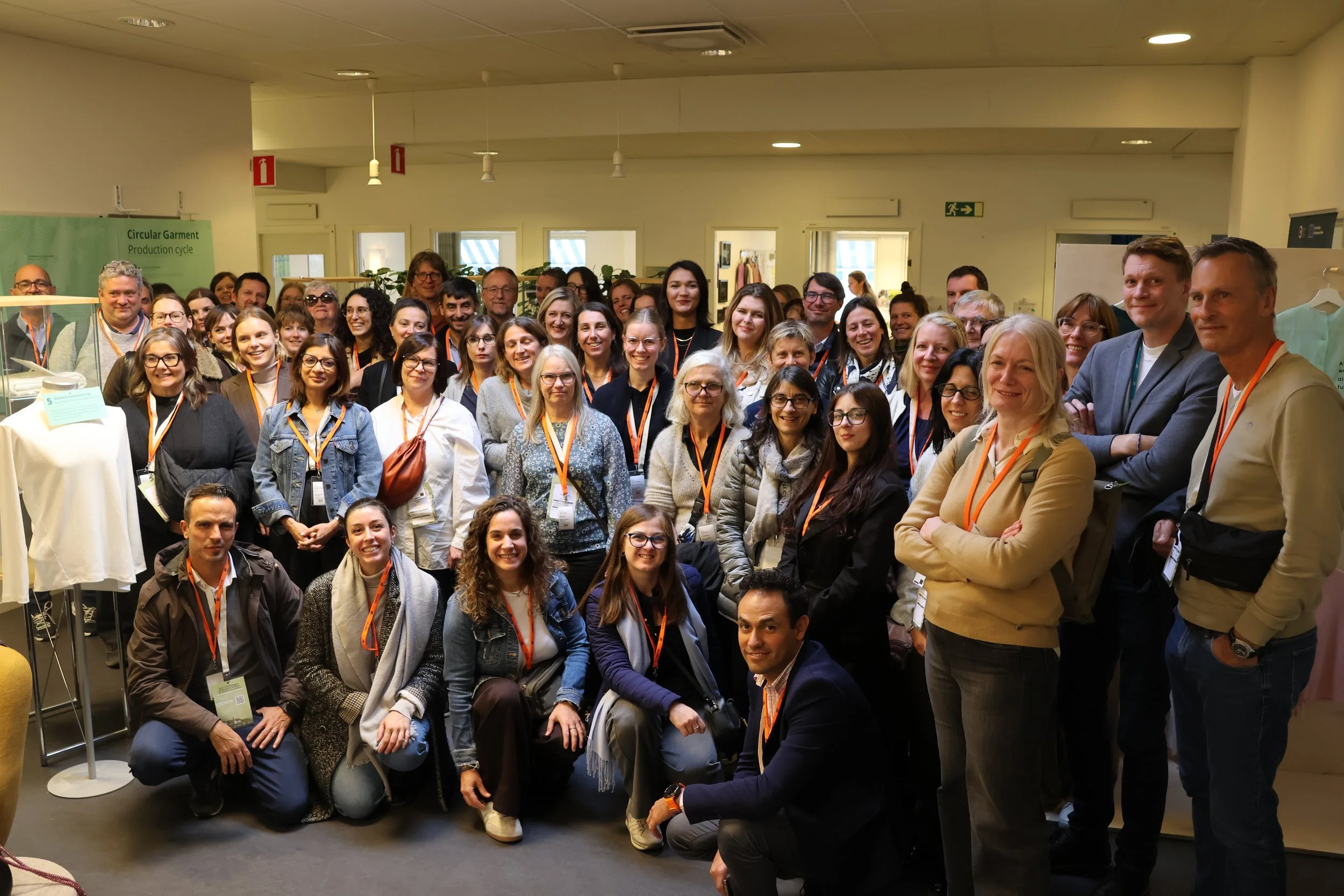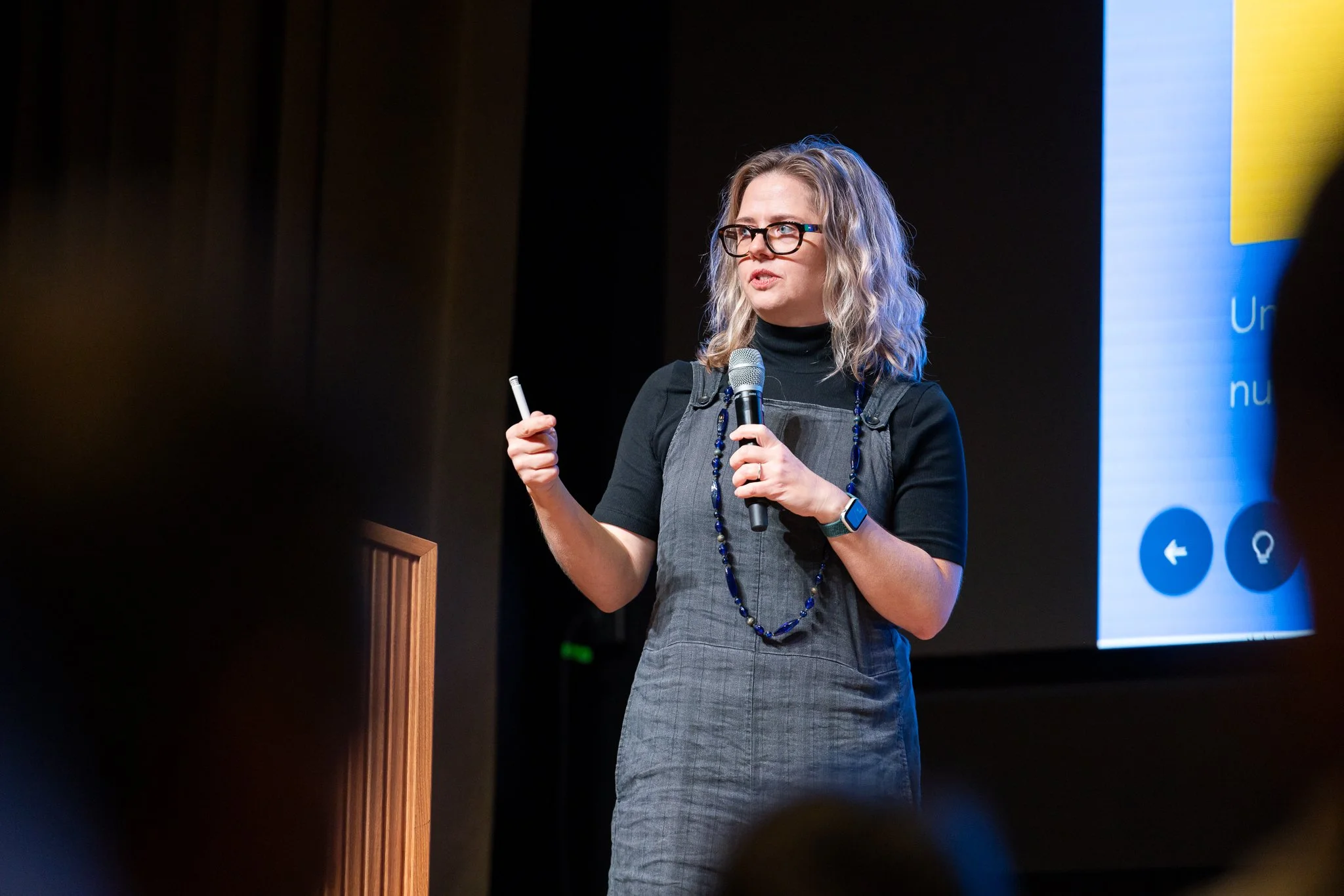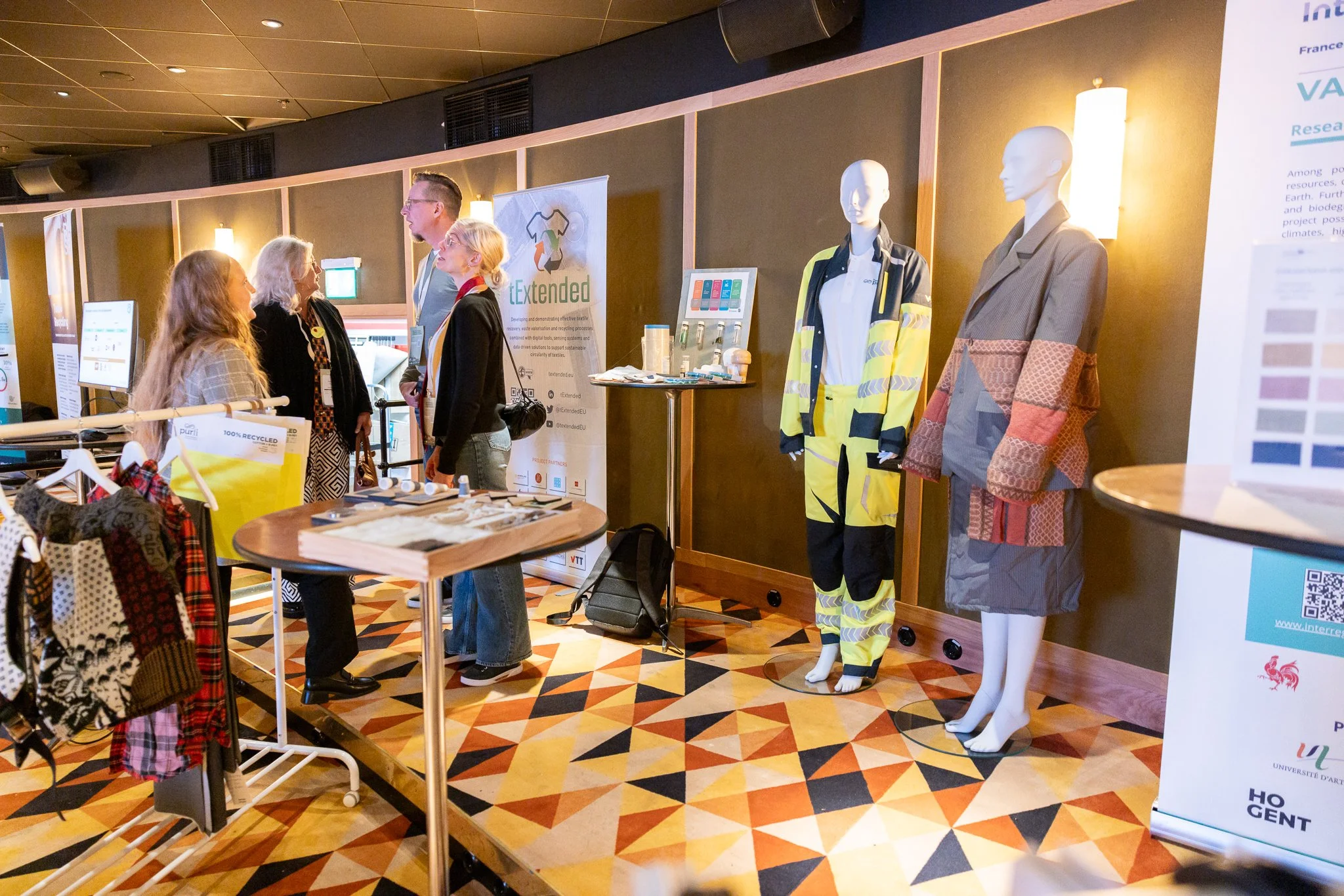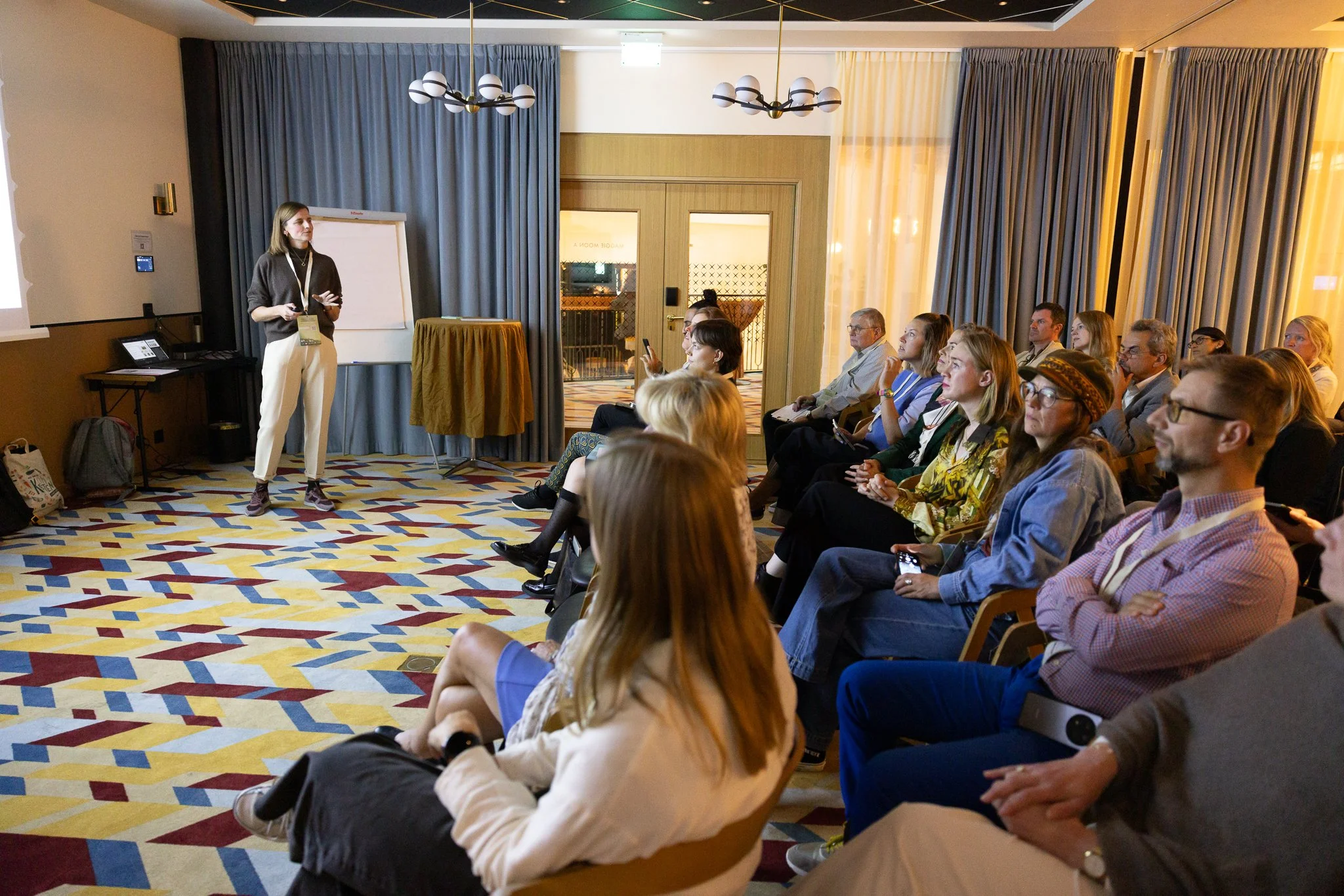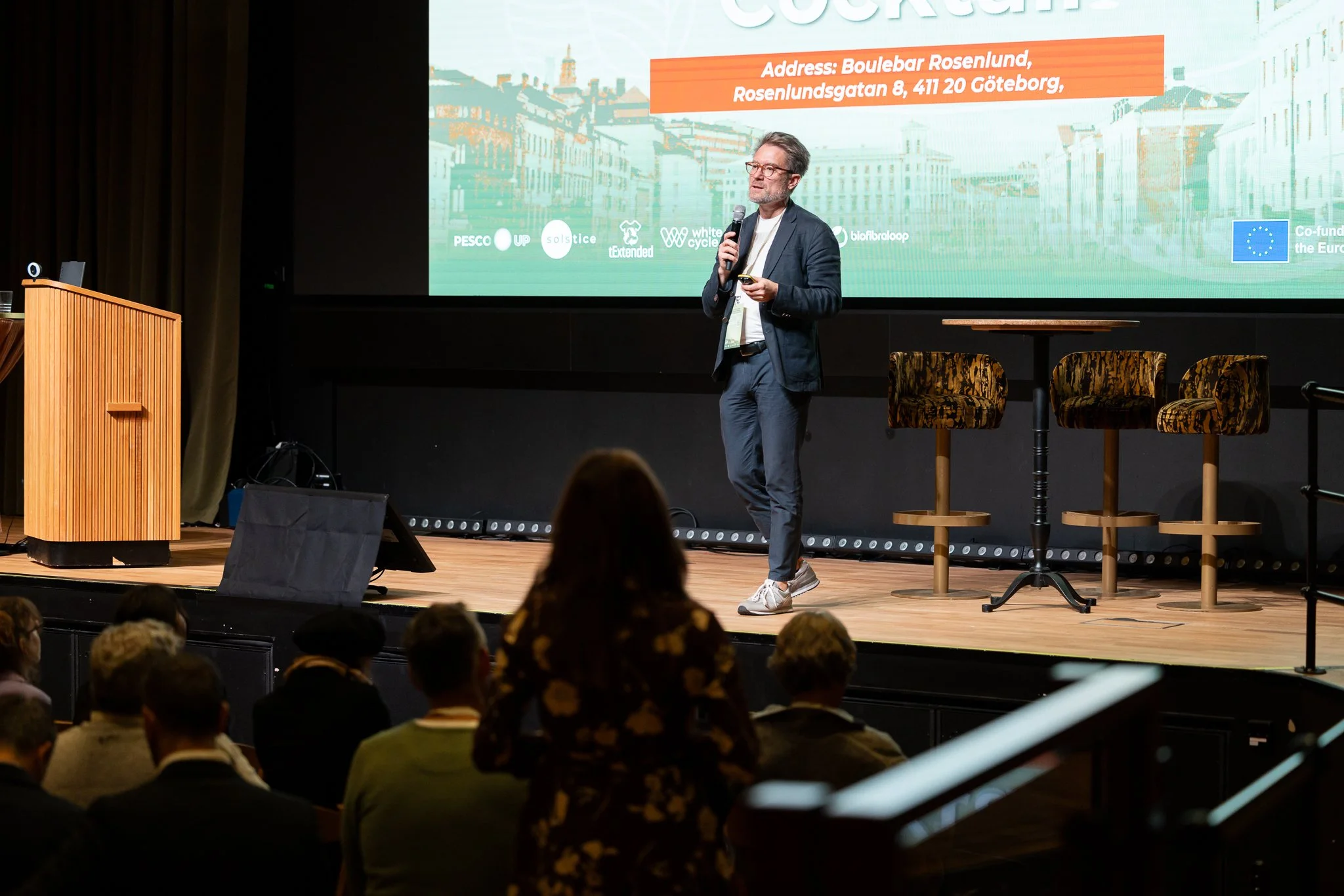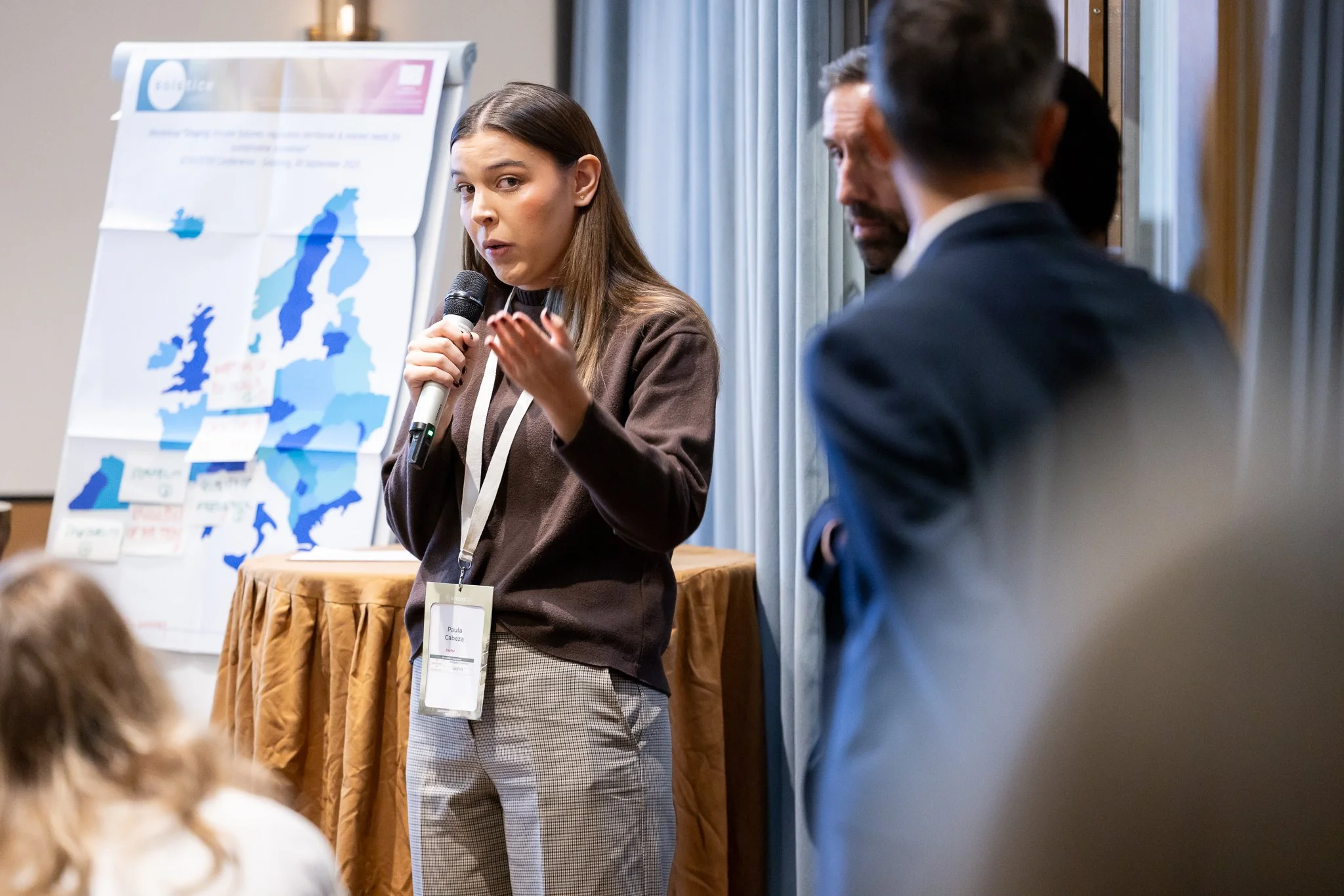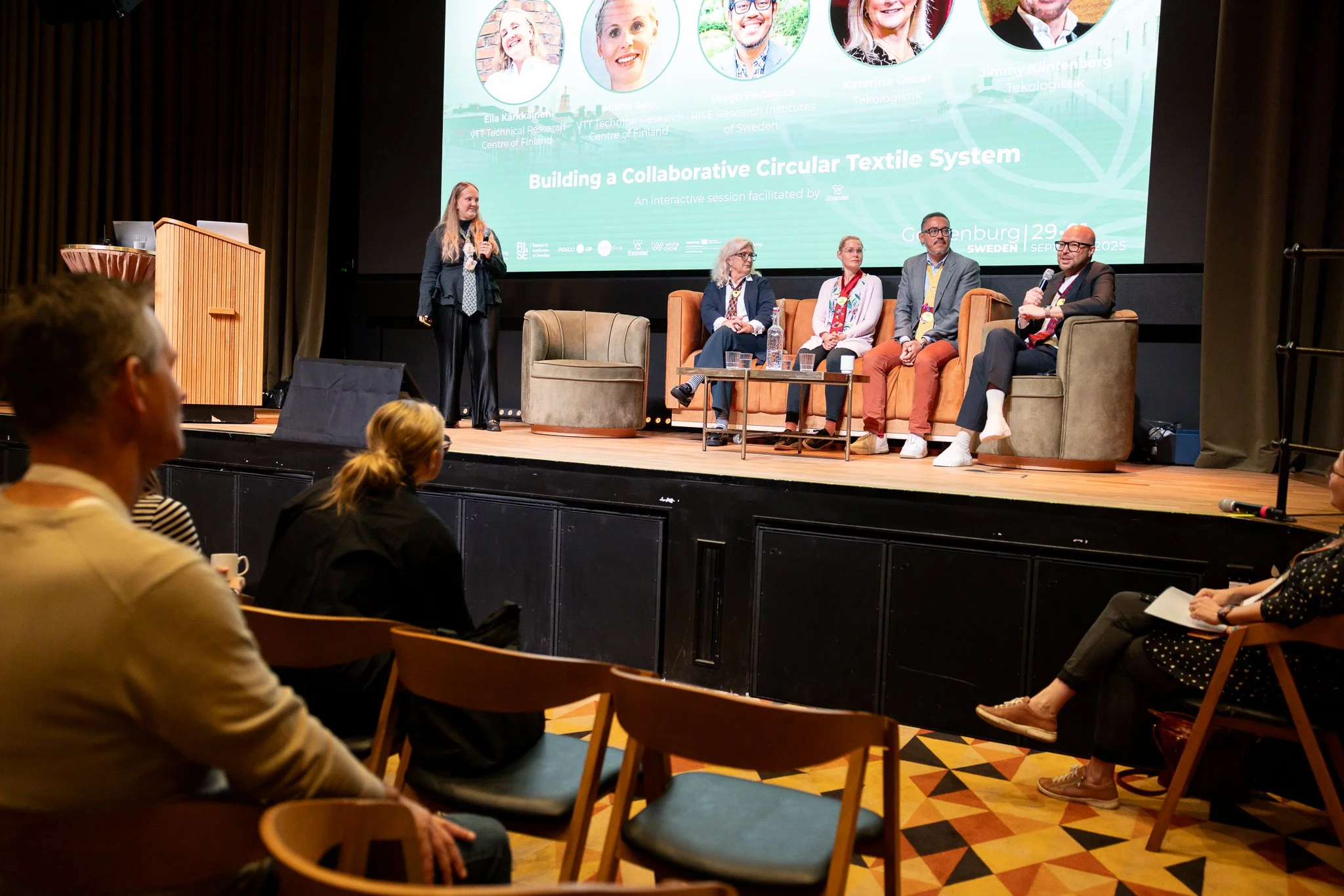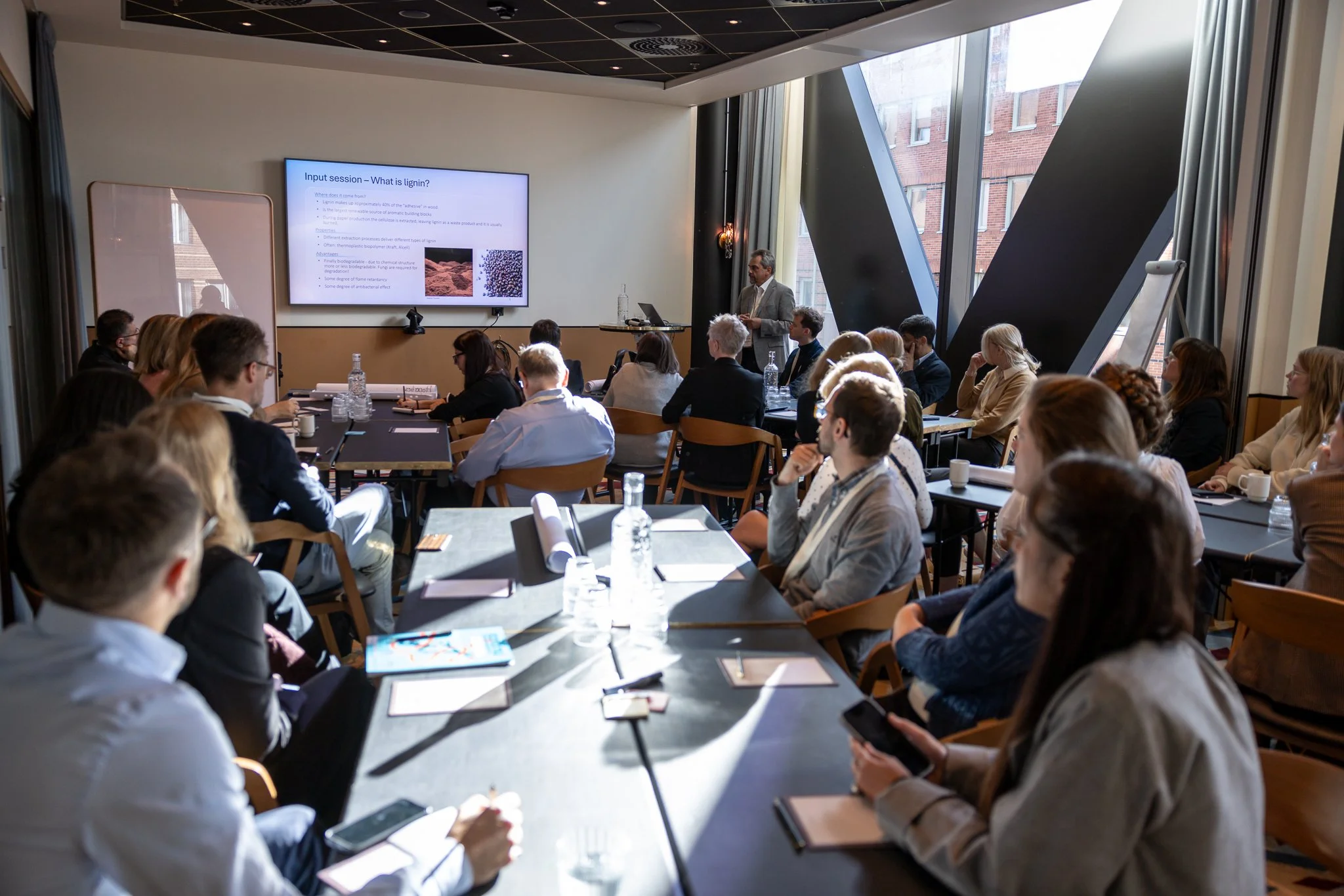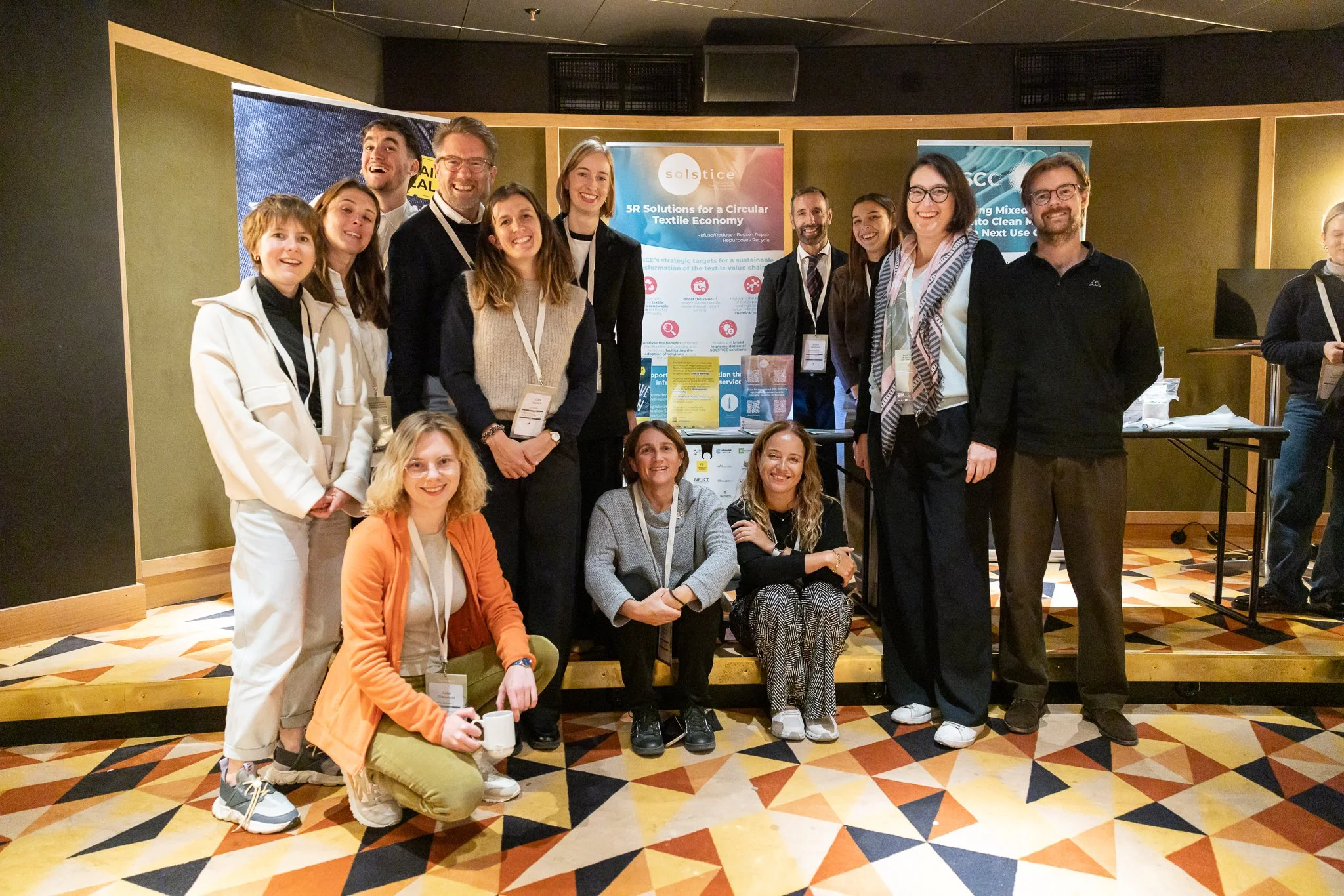ECOSYSTEX Conference 2025: New Technologies and Business Models for Textile Circularity
The third ECOSYSTEX Conference took place in Gothenburg, Sweden, from 29 September to 1 October 2025, in partnership with RISE Research Institutes of Sweden. The event brought together professionals from across the entire textile value chain to explore how emerging technologies and innovative business models can accelerate the transition toward a circular textile economy.
This year’s edition was organised in collaboration with six EU-funded projects: PESCO-UP, SOLSTICE, tExtended, Hemp4Circularity, BioFibreLoop, and WhiteCycle. Together they offered a dynamic platform for discussion and experimentation around textile circularity.
With more than 150 participants joining in Gothenburg, the conference featured policy dialogues, hands-on workshops, and interactive sessions, all designed to connect research and innovation with real-world applications.
EU policy insights and new research opportunities
The opening day set the scene with insightful sessions led by representatives from the European Commission, where experts from DG Environment discussed the evolving framework for Extended Producer Responsibility (EPR) in textiles, and DG Research & Innovation shared the latest updates on EU initiatives advancing sustainability and circularity. The Commission outlined binding timelines and financial mechanisms to redirect investment toward circular solutions, addressing the EU’s 2.6 million tons of annual textile waste, of which only around 20% is separately collected. These sessions provided a strong policy foundation for the workshops and innovation exchanges that followed.
“The challenges and opportunities we face require us to come together, and this is a fantastic example of a community that shares needs, solutions, and ideas”
- Marina Crnoja-Ćosić, President of Textile ETP
Spotlight on innovation: project workshops
The six EU-funded projects hosted immersive, co-creative workshops that turned research insights into practical strategies for circularity:
Hemp4Circularity led an engaging “Hemp Textile Business Game”, where participants explored strategic ways to strengthen Europe’s hemp value chain and examined hemp’s potential as a driver of textile circularity. The project aims to expand the hemp business in the EU by integrating locally grown hemp into the textile value chain and working directly with farmers to create sustainable supply chains starting from cultivation.
PESCO-UP guided attendees through an interactive assessment of recycling readiness and opportunities to accelerate circularity, focusing on fibre recycling from mixed cotton/polyester (CO/PES) streams. The session featured live surveys and real-time discussions, allowing participants to actively engage, share insights, and explore practical solutions together.
SOLSTICE presented its 5R solutions for a circular textile economy, emphasizing that meaningful change begins with consumer behavior. Participants worked together to co-create strategies for scaling innovation, identified high-potential regions, and contributed to a collective “Commitment Wall” that showcased shared goals for advancing circular transformation across the textile sector.
tExtended showcased digital and technological solutions for textile waste management and circularity, including its vision for a Hub4Circularity for Textiles, a digital platform designed to facilitate data sharing and track the full lifecycle of textiles across the industry. Their platform helps optimise the flow of textile materials, ensuring that each stream follows the most sustainable pathway from collection to reuse or recycling.
BioFibreLoop demonstrated how material innovation meets digital technology to advance sustainability. Attendees explored how lignin, a by-product of the paper industry, can be transformed into a valuable raw material for technical textiles. Hands-on activities allowed participants to test lignin’s potential in coatings and fibres while brainstorming future applications.
WhiteCycle focused on the challenge of recycling complex textiles, including multi-layer industrial fabrics that contain PET. These types of textiles are difficult to process using traditional recycling methods. WhiteCycle uses a unique enzymatic process to break down the waste into its basic building blocks, called monomers. These high-purity monomers can then be used to make new, high-quality textile products, closing the loop and contributing to a more circular textile economy.
The second day of the conference also saw the launch of two new ECOSYSTEX Working Groups, one focused on skills development for a circular textile economy and the other on harmonising data and standards to improve transparency and traceability. Together, they underscore the importance of collaboration, knowledge exchange, and capacity building for a more sustainable and competitive textile sector.
Visit to RISE Research Institutes of Sweden
On the final day of the Conference, participants were given an exclusive tour of the RISE Research Institutes of Sweden in Mölndal. RISE is Sweden's state-owned research institute, dedicated to promoting sustainable growth through applied research and innovation. With over 130 testbeds and demonstration environments, RISE collaborates with industry, academia, and the public sector to ensure the competitiveness of Swedish businesses and contribute to a sustainable society.
During the visit, attendees explored RISE's state-of-the-art facilities focused on fiber development, textile recycling, and testing & certification. They learned firsthand how RISE supports the transformation of the textile industry by developing innovative materials and methods to produce fibers, yarns, and nonwovens from bio-based and synthetic raw materials. The tour provided valuable insights into RISE's role in advancing sustainable practices within the textile sector.
The third day was dedicated to the ‘Textile ETP on Tour’, where a group of ETP and ECOSYSTEX members had the opportunity to visit the facilities of the Swedish School of Textiles in Borås.
These conference days successfully achieved their goal of building and strengthening the ECOSYSTEX network, bringing together a fundamental community of innovators who shared practical solutions from their projects and inspired discussions among participants. The event demonstrated that the transition to a circular textile economy is possible, though complex, and ongoing across Europe. A clear message emerged from all participants: progress can only be made by uniting forces and fostering strong connections across the entire value chain.
Photos of the ECOSYSTEX Conference 2025 are available here.
